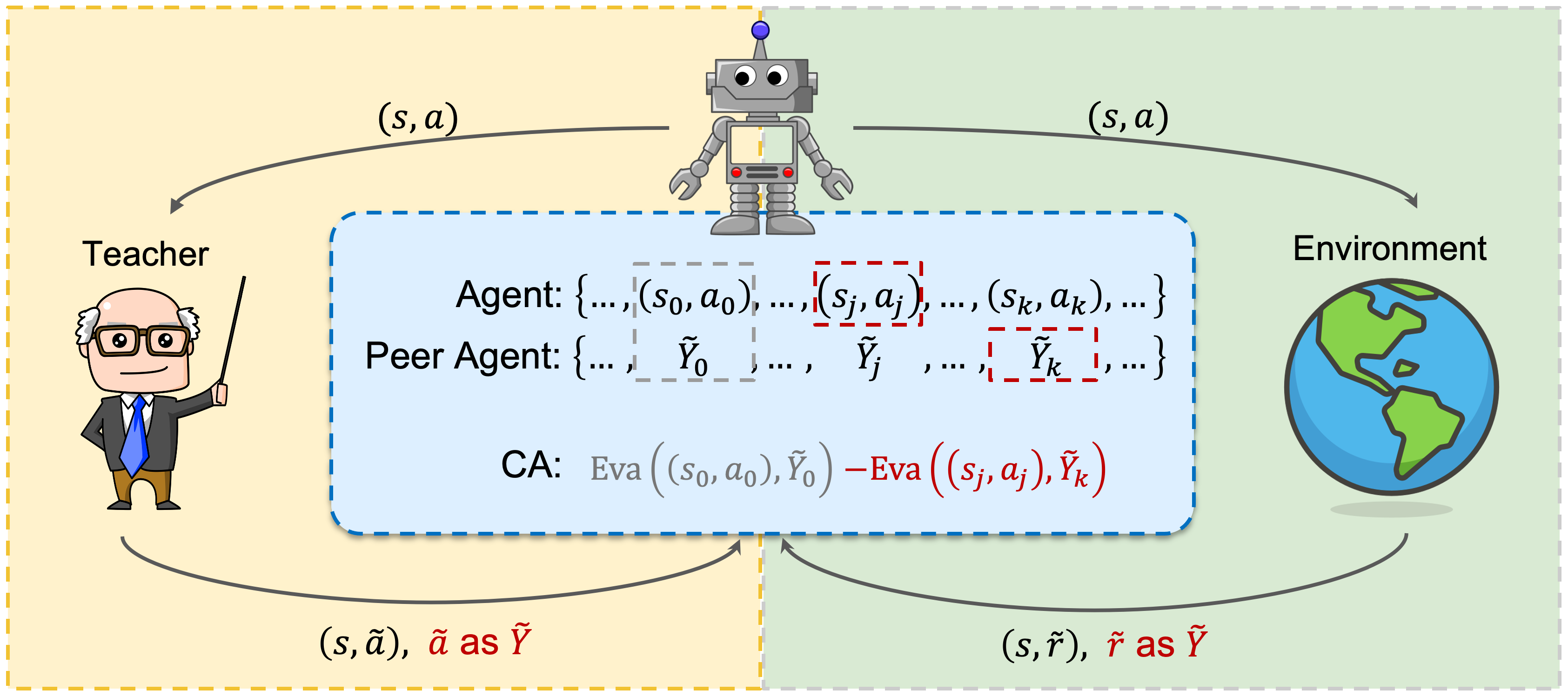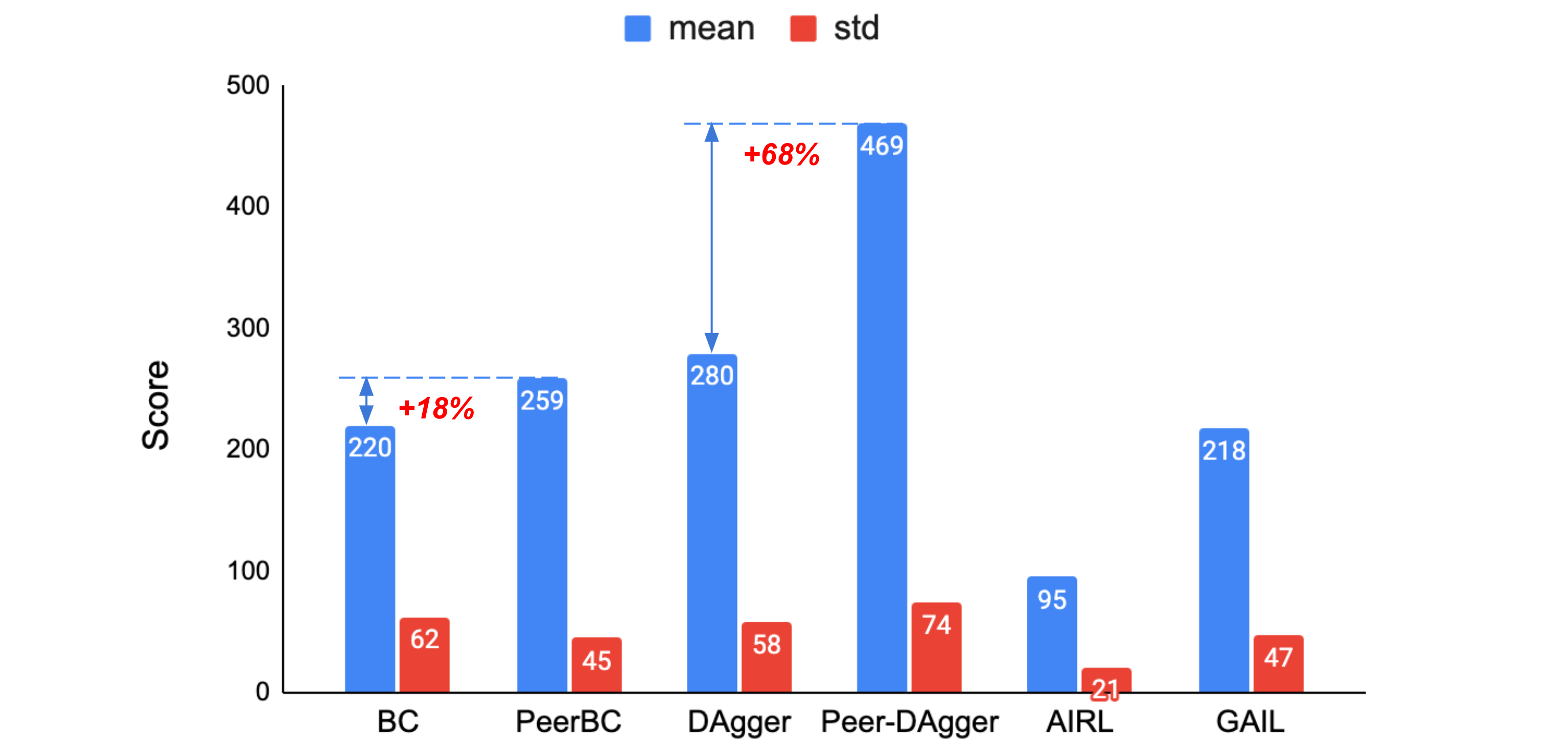


BibTeX
@inproceedings{wang2021policy,
title = {Policy Learning Using Weak Supervision},
author = {Jingkang Wang and Hongyi Guo and Zhaowei Zhu and Yang Liu},
booktitle = {Thirty-Fifth Conference on Neural Information Processing Systems},
year = {2021},
url = {https://openreview.net/forum?id=UZgQhsTYe3R}
}
Text citation
Jingkang Wang, Hongyi Guo, Zhaowei Zhu and Yang Liu. Policy Learning Using Weak Supervision. In Thirty-Fifth Conference on Neural Information Processing Systems (NeurIPS), 2021.
@inproceedings{liu2020peer,
title = {Peer Loss Functions: Learning from Noisy Labels without Knowing Noise Rates},
author = {Yang Liu and Hongyi Guo},
booktitle = {Thirty-Seventh International Conference on Machine Learning},
year = {2020},
}
@inproceedings{wang2020reinforcement,
title = {Reinforcement Learning with Perturbed Rewards},
author = {Jingkang Wang and Yang Liu and Bo Li},
booktitle = {Thirty-Fourth AAAI Conference on Artificial Intelligence},
year = {2020},
}
